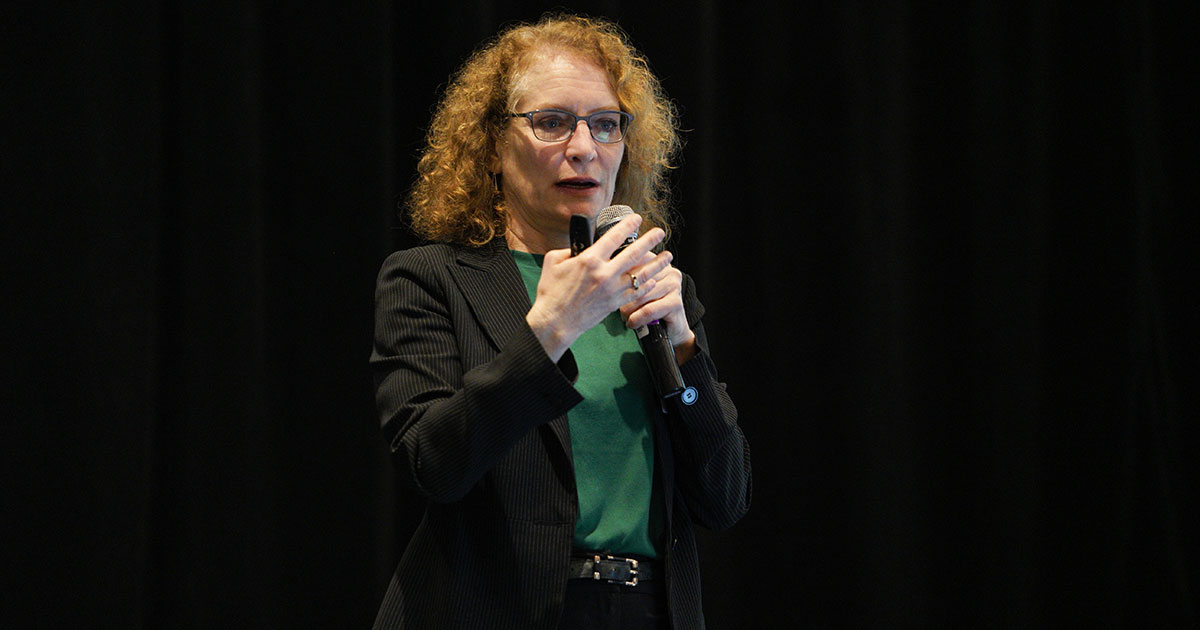Entrepreneurs Worldwide Want Their Business to Make a Difference

Forty percent of entrepreneurs in 35 economies want to use their businesses to make a difference in the world.
That’s one of the findings of the latest Global Entrepreneurship Monitor (GEM) Global Report, released during the annual meeting held in Miami on March 3, 2020.
“It is encouraging to see the substantive evidence of ‘purpose-driven’ entrepreneurship taking hold at the grassroots level,” said Aileen Ionescu-Somers, GEM executive director.
In the U.S., the average level of both entrepreneurial activity and established business ownership has trended upward for the past 19 years.
“The positive attitudes about entrepreneurship that we see in the United States, and in many other parts of world, are an encouraging sign,” said Donna Kelley, Babson’s Frederic C. Hamilton Professor of Free Enterprise Studies.
“Babson is proud to be a founding partner and longtime supporter of the Global Entrepreneurship Monitor,” said Babson President Stephen Spinelli Jr. MBA’92, PhD. “The outcomes of this paramount study impact economic policies, educate students, entrepreneurs and stakeholders worldwide, and influence the research and teaching around entrepreneurship all over the globe.”
What Motivates Entrepreneurs
In addition to these positive attitudes, the motivations of entrepreneurs also may be indicative of disruption or job insecurity in many economies. In 35 of the 50 economies, over half of adults starting a new business agree with the motive “to earn a living because jobs are scarce.” Women also were more likely than men to agree that earning a living because jobs are scarce is an important motivation.
The GEM results confirmed that accumulating financial wealth also is an important motivating factor. More than eight out of 10 of those starting a new business in Iran, Qatar, Pakistan, India, and Italy indicated that building great wealth or income has motivated them.
Gender Gap Narrows Between Entrepreneuring Women and Men
While a greater proportion of men than women typically engage in Total Entrepreneurial Activity (TEA) overall, the gender gap narrowed in the United States in 2019, where there are nine women entrepreneurs for every 10 men entrepreneurs. In 2018, the female to male entrepreneurship ratio was 7.5 to 10.
At the same time, GEM finds differences in attitudes and outlooks between women and men.
Women starting a business are more likely to agree with the motivation of making a difference to the world. Men starting a business are more likely to agree with the motives of building great wealth or high income, or of continuing a family tradition.
50 Economies Studied
The Global Entrepreneurship Monitor (GEM) studies the state of the entrepreneurial mindset, motivations, activities, and ambition, and the national framework conditions required to allow entrepreneurship to flourish in an economy. Fifty economies participated in the recent GEM 2019 Adult Population Survey (APS), including 11 from the Middle East and Africa, eight from Asia and Pacific, eight from Latin America and Caribbean, and 23 from Europe and North America. Five of these economies are classified as low-income level, 12 as middle-income, and the rest as high-income. Over 150,000 individuals participated in extended interviews as part of the GEM research in 2019. The GEM consortium has become the richest resource of information on entrepreneurship, publishing a range of global, national and special topic reports on an annual basis.
Many of the GEM researchers traveled to Miami to gather with Babson scholars, alumni, entrepreneurs, local leaders, and visionaries to launch the 2019–2020 Global Report. Miami Mayor Francis X. Suarez joined with fellow panelists that included Knight Foundation Director Raul Moas, eMerge Americas President Melissa Medina, Gallant CEO and Founder Aaron Hirschhorm, and Babson Miami Campus Director Gustavo Trindade MBA’17 to discuss Miami’s emerging entrepreneurial ecosystem. Longtime Latin America entrepreneurship supporter Alberto Perlman ’98, co-founder and CEO of the global brand Zumba Fitness, LLC, held a fireside chat with Babson’s Blank Center Executive Director Debi Kleiman. Founded in 2001, Zumba is the largest branded fitness company in the world—reporting more than 15 million weekly participants, in 200,000 locations, across 186 countries.





